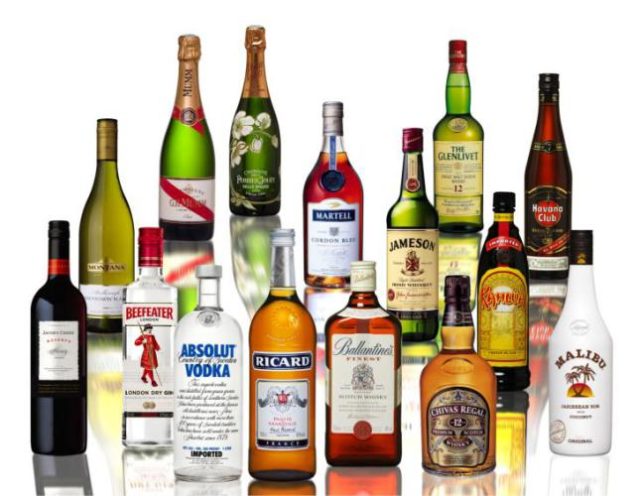
A liqueur is an alcoholic beverage made from a distilled spirit that has been flavored with fruit, cream, herbs, spices, flowers or nuts and bottled with added sugar or other sweetener (such as high-fructose corn syrup). Liqueurs are typically quite sweet; they are usually not aged for long after the ingredients are mixed, but may have resting periods during their production to allow flavors to marry.
- In parts of the United States, liqueurs may also be called cordials or schnapps.
- Grand Marnier Created in 1880, it is one of the most popular liqueurs of all time. Escoffier used it as an ingredient for his culinary masterpiece Crepe Suzette. Cesar Ritz was so impressed with this liqueur that he was among the first to introduce it at his hotels.
- All liqueurs are blends, even those with a primary flavor.
- Liqueurs are not usually aged for any great length of time (although their base spirit may be), but may undergo resting stages during their production in order to allow the various flavors to “marry” into a harmonious blend.
- Limoncello got so popular in Italy at one point in the past decade that some restaurants were giving it away for free.
- In parts of the United States, liqueurs may also be called cordials or schnapps.
- The most common liqueurs that you should consider absolutely essential when stocking your bar: Amaretto, Coffee Liqueur (e.g. Kahlua), Dry and Sweet Vermouth, Irish Cream Liqueur, Maraschino Liqueur and Orange Liqueur (e.g. triple sec, Cointreau, Curaçao).
- Bourbon doesn’t have to be made in kentucky.
- London dry gin isn’t made in london. London dry gin = dry gin. The term refers to method rather than geography.
- Vodka isn’t the world’s best-selling spirit category, baijiu is.
- Up until recently, campari used to be made from crushed up beetles.
- George Washington had a distillary. After its completion, it produced 11,000 gallons of hooch a year. It’s also still operable, sort of.
- The word brandy is derived from the Dutch word brandewijn, which translates to “burnt wine.”
- Stylists in the 1800s believed that rum held the secret to clean and healthy hair, and often advised their clients to wash and soak their hair in the tropical liquor.
- Gin became extremely popular in the British colonies due to its use as an additive in concoctions intended to prevent malaria.
- Vodka is the world’s most popular liquor by a huge margin, with more than 4.44 billion liters consumed last year. In Russia alone, 13.9 liters of vodka are consumed each year per person.
Sources:












